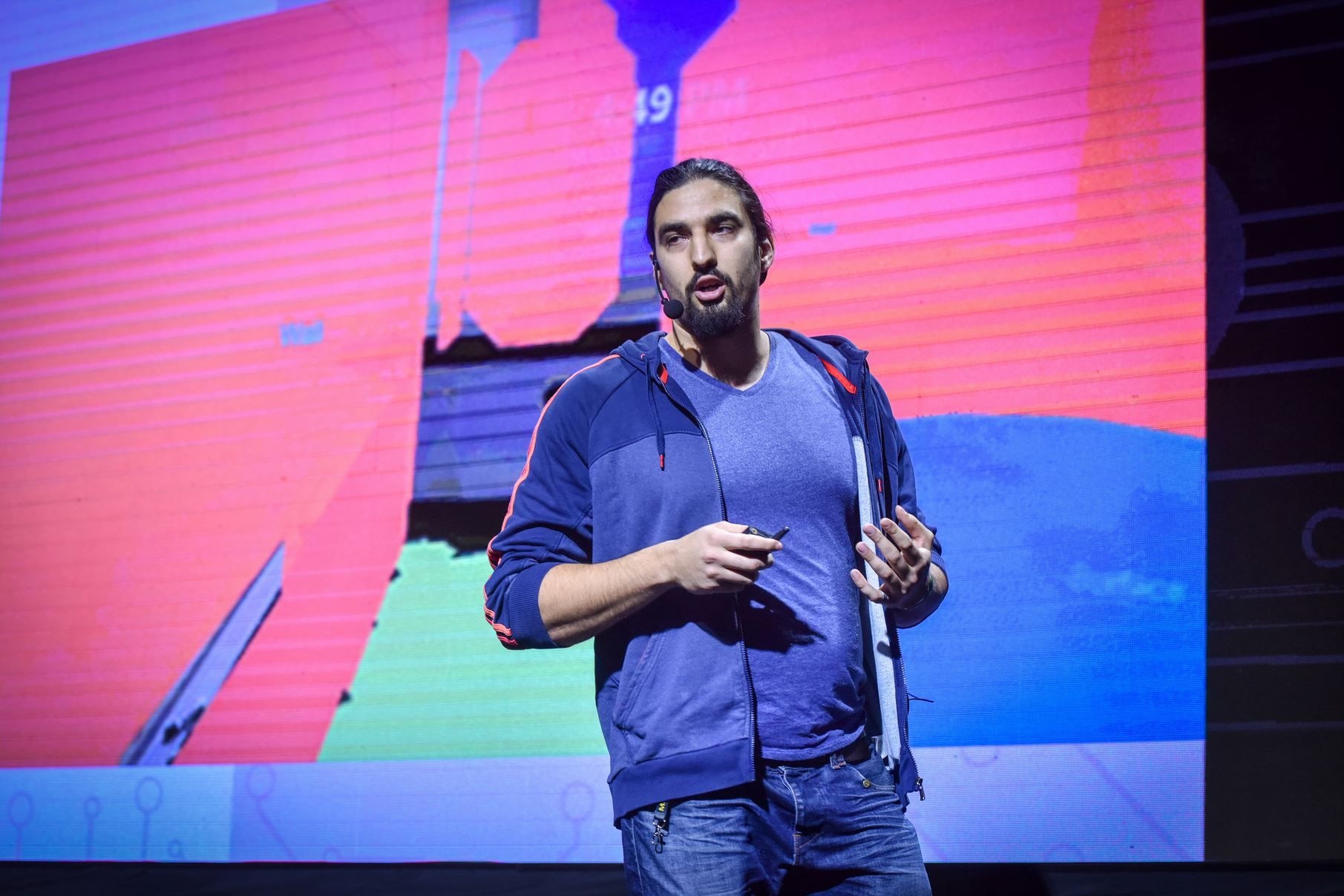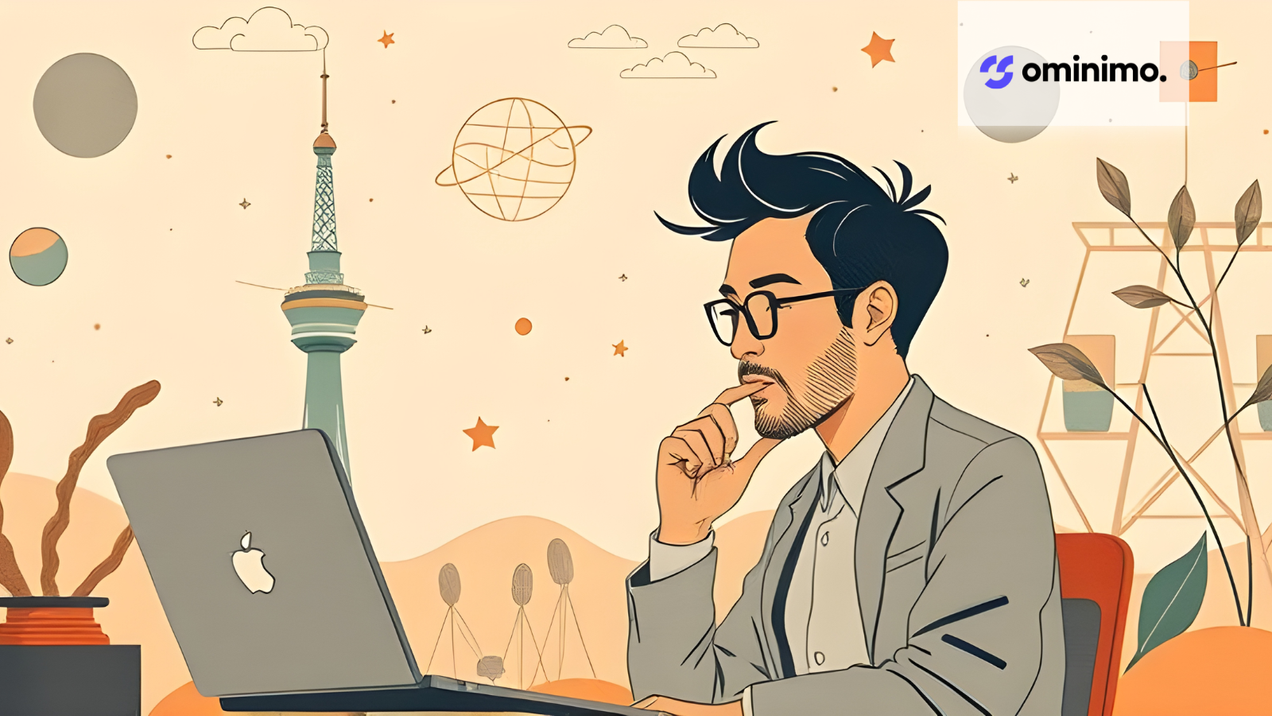
A talk with Aleksa Gordić, creator of YugoGPT
If you read one of our previous blogs on the tech trends that await us in 2024, then you probably saw that we talked about artificial intelligence. We talked about the fact that AI marked 2023, but also that there is still a lot ahead of us in terms of AI innovation.
Well, we have already entered 2024 on a strong note. ChatGPT has marked 2023 on a global level, but what about our market? If you haven't heard or seen it yet, our region could potentially be marked by YugoGPT in 2024. Although the product was released at the end of December, growth and development are just starting. We had the opportunity to speak with the creator of YugoGPT, Aleksa Gordić, and here is what we learned about the whole project.
Aleksa developed the idea last summer when he started working on an open-source from Meta called 'no language left behind'. He noticed that there is no open-source ecosystem around the so-called large language models, but also in general that there is a lack of intelligent systems for translation and other systems for neurolinguistic programming, and that the support for our languages is quite bad.
"This is how the idea of YugoGPT was born, a large language model of seven billion parameters for the Croatian, Bosnian, Serbian, and Montenegrin languages," says Aleksa.
Aleksa is a Software and ML Engineer, with previous work experience at Microsoft on the HoloLens project, and then at Google's Deep Mind, and now the Founder of Runa AI startup. The company deals with the construction of full-stack GenAI language-specific LLMs for governments and companies, and Aleksa's knowledge and focus now go to the creation of a regional language model. We asked him a little more about the thoughts he had during the creation of YugoGPT and what led to this product.
"I've been planning to launch my startup for a long time, since 2017 when I graduated from ETF in Belgrade. So all the steps I've taken so far (Microsoft, DeepMind, etc.) have somehow led to this.
Aleksa told us that that turned out to be a beautiful combination because it is at the intersection of 3 areas: "something I know how to do at the global level, economically valuable to companies as well as individuals and the local AI ecosystem, as well as something I'm passionate about (languages (I speak 5 foreign languages) and technology)."
You would probably think that developing a product like this would last for a long time, from the idea to realization but Aleksa told us that in his case, everything went quickly.
"The idea for YugoGPT was born exactly on October 25, 2023. After that, on November 15, 16 A100 GPU cards (GPUs) arrived from Together AI. It took me about a week to get used to the system and set up nicely and start developing the first prototypes."
If you're like us, you've probably wondered how Aleksa came up with the idea for this particular name. He also revealed this fun fact to us:
Furthermore, we would all expect that there can be some obstacles along the way. Aleksa told us that knowledge was not a problem in execution, but rather the purchase of GPUs, which he was the most afraid of.
"Now that I have 32 (16 A100s and 16 H100s) I feel a lot more relaxed."
Of course, in the creation of this project, the problems were not only of a technical nature. When it comes to artificial intelligence, the problems can reach even deeper, to the legal, state, and financial levels. Aleksa revealed to us that companies cannot easily justify open-source projects and that he got more help from individuals who want to remain anonymous.
He also explains a little more about how his startup RunaAI played a role in this process: "I also started a for-profit startup Runa AI where we create a platform for these language models. We already had a lot of interest from companies there. Most of the big banks and companies have already contacted us, as well as the state itself (Serbia is the only one for now)."
You are probably familiar with the EU AI Act or the first regulation on artificial intelligence that is expected to enter into force in 2024. This AI Act would help the development of technology that does not threaten people's safety and rights.
We asked Aleksa how much of an impact can a government have on AI and he stated that the government should help the local AI system: "by building a supercomputer, by providing a large set of data, investing in education, say AI basic studies, and introducing AI in primary/secondary schools."
He also commented on the AI executive order that came out in America in 2023.
"The AI executive order that was recently issued in the USA is, in my opinion, a step in the wrong direction. Controlling how many GPUs a company owns or how many FLOPs an LLM was trained with before falling under strict control does not make much sense considering how dynamic the field is. In a year, those numbers will be very different and all these laws will suddenly and suddenly become obsolete and will start to slow down progress unnecessarily.
On the other hand, if someone makes an LLM assistant for medicine and charges for it, there should be a lot of regulation. It is necessary to know where the strengths and weaknesses of these models are and to control applications where these weaknesses can have serious consequences (self-driving, medicine, etc.)."
So, regulation should be at the level of products, not LLMs.
What most of us are probably wondering is how AI will develop in our region. Do we have a potential for that? Following news and information from the world and initially America, we see how much power and influence AI had, but also the speed of development. Is the situation similar here and do we have a favorable position for the sudden development of artificial intelligence?
"That's a good question, the honest answer is I'm not sure. I think the big barrier will be the following three items: lack of GPUs by domestic companies, lack of talent/people who know how to train and fine-tune these models, and lack of awareness about why open source is important - because of this, I think some companies will just take the model, build something internally, and then not share their work with the community. Unfortunately, many people still only hear "free" when they hear open-source.
The question that may follow is why YugoGPT when ChatGPT works in these languages. But Aleksa has an answer for that too:
“There are currently no open-source or generally publicly available large language models that work well for "our" languages. By publicly available, I mean language models that do not have a permissive license but can be used exclusively for research, but not for commercial projects. We don't even have that. ChatGPT works pretty well for Serbian, but the problem is that you don't have access to the model behind that service. This is a big problem for companies that value their data and, for privacy and security reasons, cannot and do not want to send to US APIs like ChatGPT.”
Speaking about ChatGPT, we briefly mentioned a competition in our area. Aleksa explains to us how competition is non-existent in the region, and that the companies working on roughly similar ideas are Cohere and French Mistral.
How important experience and knowledge are for something like this is not at all questionable, but how crucial the connections with great experts and influential people in this field are, is perhaps greater than we imagined.
"Work on Deep Mind helped me in the aspect that I met a lot of important people in the AI world and created a significant network of AI experts on my social platforms (YouTube, LinkedIn, Twitter, Discord). Among other things, this enabled me to get up to 32 GPU-s "for free". Otherwise, this pleasure would have cost me $100,000 in 3 months."
Since it's been a month since the launch of the Yugo GPT, of course, we wondered what are the first reactions and numbers.
On the question of what is the plan for the future, Aleksa told us that they are raising the first rounds of investments soon and that the pitch deck is already here.
"We are starting from the region, we are building a full-stack AI app platform that will enable companies to easily create their assistant that would enable them to easily search for information that is buried in their company data, in all regional languages of interest."
"Soon we will support all regional languages, and then we are also looking at Southeast Asia. In the end, we plan to support all languages and create an AI application platform where companies can simply come and create something without special in-house ML talent."
You heard it all firsthand. How will the YugoGPT develop and what awaits us in the future, the time will tell. We wish Aleksa the best of luck and success on this path of product development, and in introducing changes in our region.
If you haven't tried Yugo GPT yet, you can do so at the link, and we are leaving a link to Aleksa's LN profile and RunaAI, where you can follow further development.


